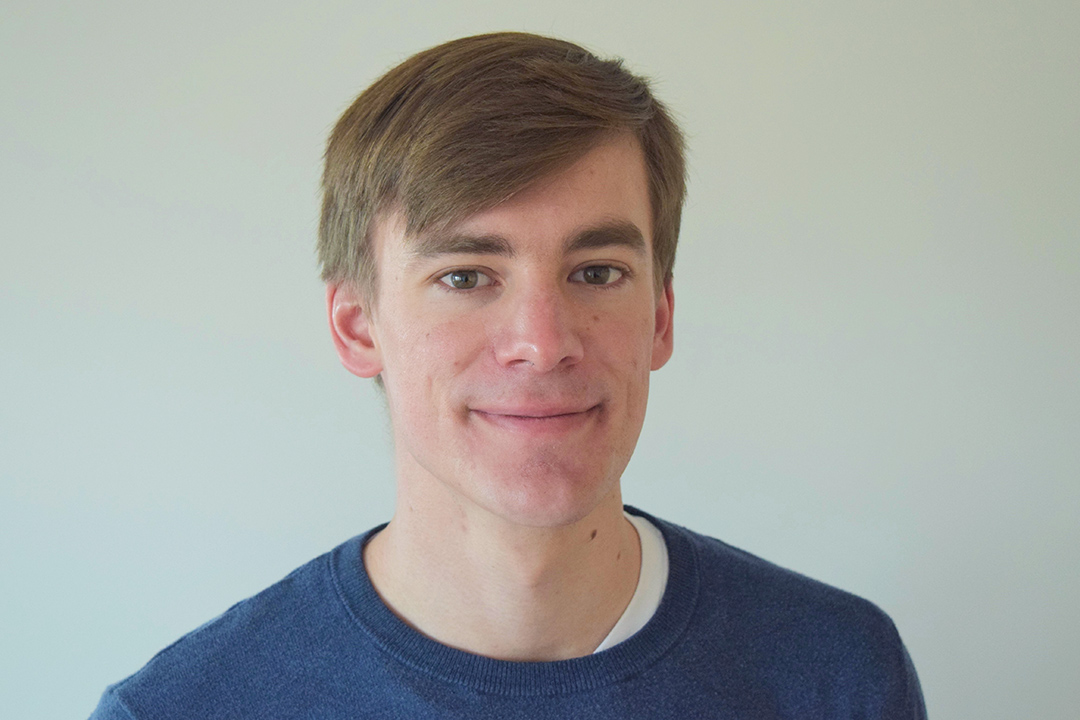
USask graduate’s vaccination research timely in 2020
When University of Saskatchewan (USask) graduate student Derek Cameron began his studies in the fall of 2018, he couldn’t have predicated how timely his master’s degree research would become.
By SHANNON BOKLASCHUKCameron, who enrolled in the Master of Arts program in history offered through USask’s College of Arts and Science, decided to research anti-vaccine perspectives—a topic that is now on the minds of many, as the world continues to grapple with the COVID-19 pandemic and scientists rush to develop vaccines to stem the spread of the disease.
Cameron was particularly interested in how homeopaths have marketed products called nosodes, which are often sold to members of the public with the claim that they can prevent certain diseases or help build immunity to them. When homeopathic nosodes came to Canada in 1987, they provided the “vaccine-hesitant” with another option to vaccination, he said.
“Over the years, alternative health and anti-vaccine activists used nosodes to criticize vaccines and present a ‘risk-free’ alternative. At the same time, the idea of nosodes as purveyors of natural immunity appealed to those who had already rejected vaccines, by promising to protect their children,” said Cameron.
“My research used natural health magazines and the writings of prominent anti-vaccine activists to uncover this vaccine critique that has gone unnoticed by government but remains prominent in natural health communities. Government education programs did not respond and continue to ignore a prominent argument that radically alters the context of choosing whether to vaccinate.”
Cameron, who has now completed his master’s research, will officially receive his graduate degree during USask’s virtual 2020 Fall Convocation. Due to the ongoing pandemic, Cameron and his fellow graduates will be unable to attend in-person convocation ceremonies; rather, the graduates, and their accomplishments, will be celebrated online this year.
While the pandemic has changed many things, it has also presented some new opportunities. Cameron, for example, had the opportunity this year to work on USask’s COVID-19 Community Archive, which was recently created to document life in Saskatchewan during the health crisis. He worked on the digital archive along with his master’s degree supervisor Dr. Erika Dyck (PhD), a USask history professor and Canada Research Chair in the History of Medicine.
During his master’s studies, Cameron also undertook a research project examining the 1918 Spanish flu health crisis—considered to be one of the deadliest pandemics in history. By looking at newspapers and public health records from the time, he found that the flu came to Saskatchewan in two waves. The research, which was funded by the federal Social Sciences and Humanities Research Council (SSHRC), resulted in findings that are relevant to today’s pandemic.
“Restrictions need to be sustained and sometimes reapplied. In many ways, Saskatchewan cities (in 1918) did not wholeheartedly apply mask restrictions and public gathering bans and this reduced their efficacy,” he said. “At the same time, the flu interrupted public health efforts to routinize vaccination. This meant that several communities experienced a resurgence in preventable diseases, like typhoid, in the wake of the 1918 pandemic.”
Cameron, who is particularly interested in public health policy, said studying the history of medicine offers him a way to explore policy ideas around vaccination and vaccine rejection. As a result, he is now pursuing a PhD in history at USask, where his doctoral thesis will be connected to his master’s degree work. He is pleased to be supervised again by Dyck, whom he refers to as “a giant in the Canadian world of the history of medicine.”
“Dr. Dyck was my (master’s) supervisor and she was influential in directing me towards other histories of resistance and shaping my writing so that my policy concerns did not overshadow rigorous historical analysis,” he said. “This is especially important as I broaden my project to explore other overlooked arguments of Canadian anti-vaccinationism.”
As he pursues his PhD, Cameron will study Edda West, who is known for founding Vaccine Choice Canada in 1982. He will also explore the connections between anti-vaccine perspectives and public policy.

